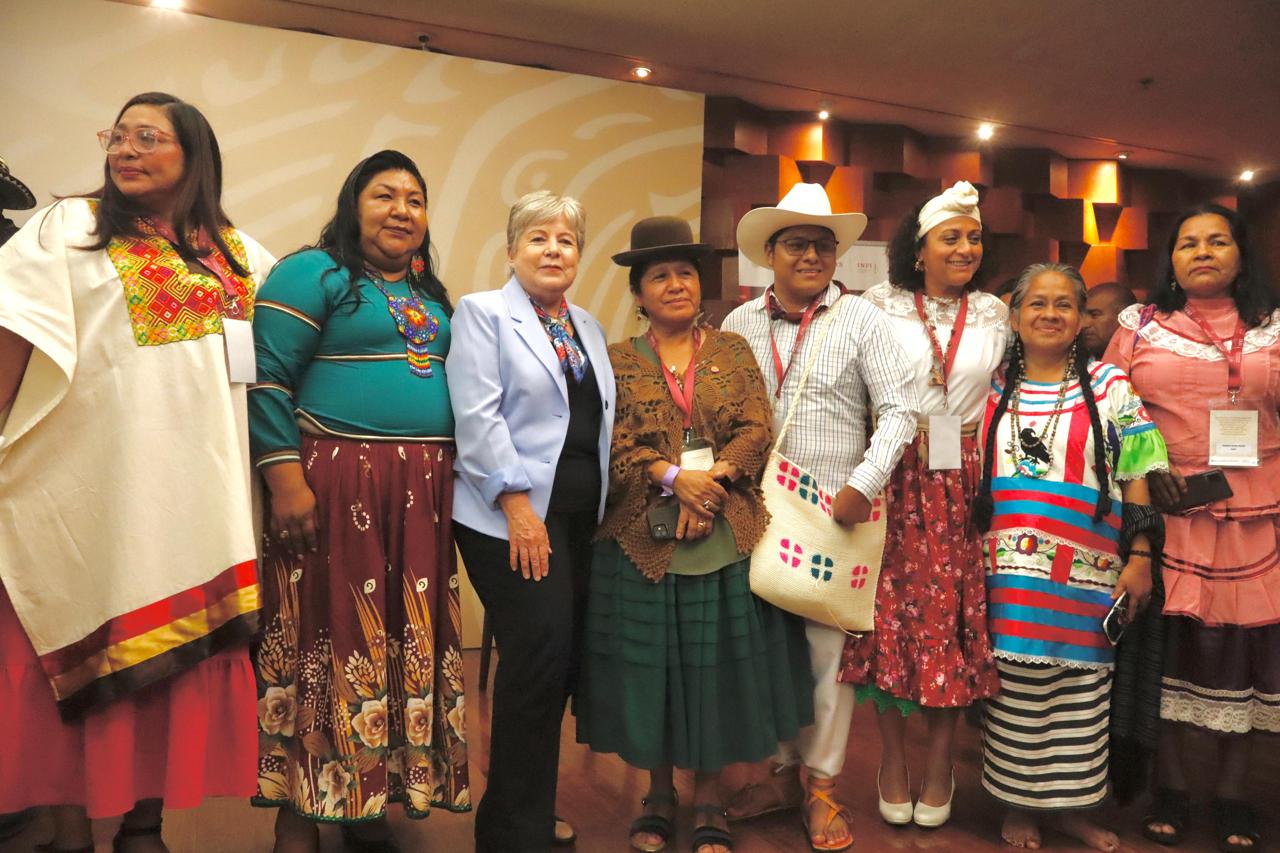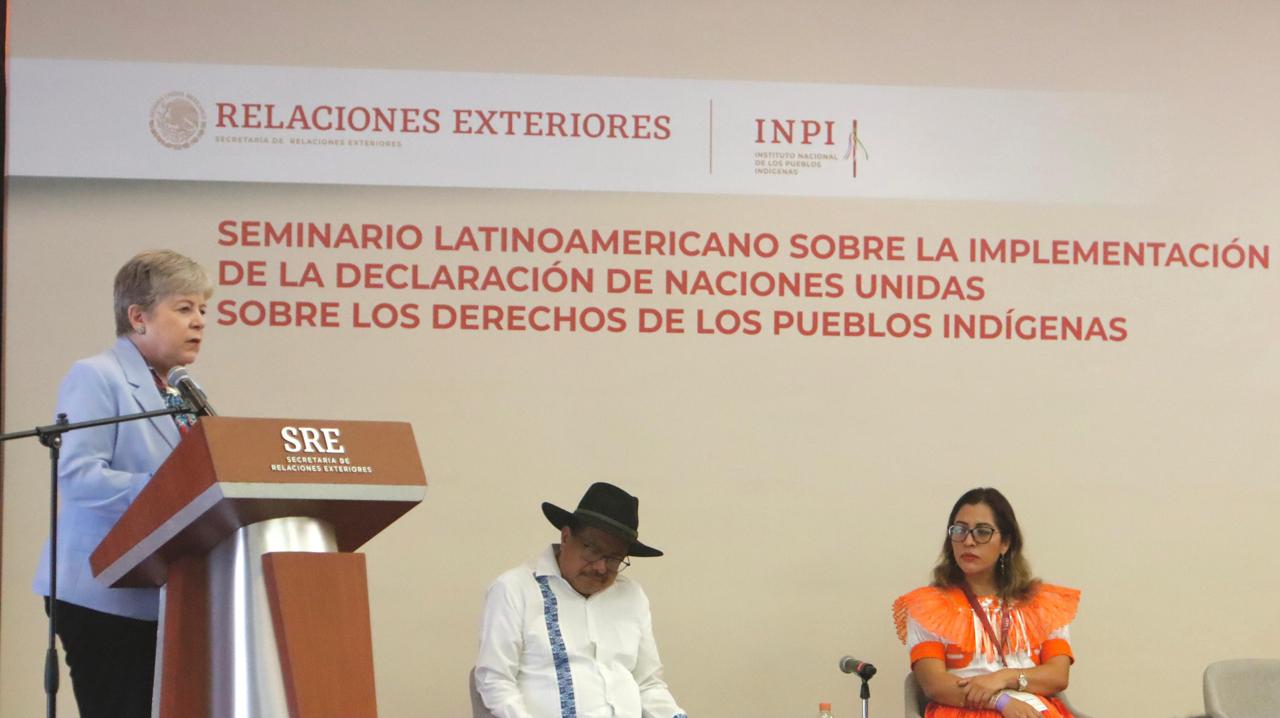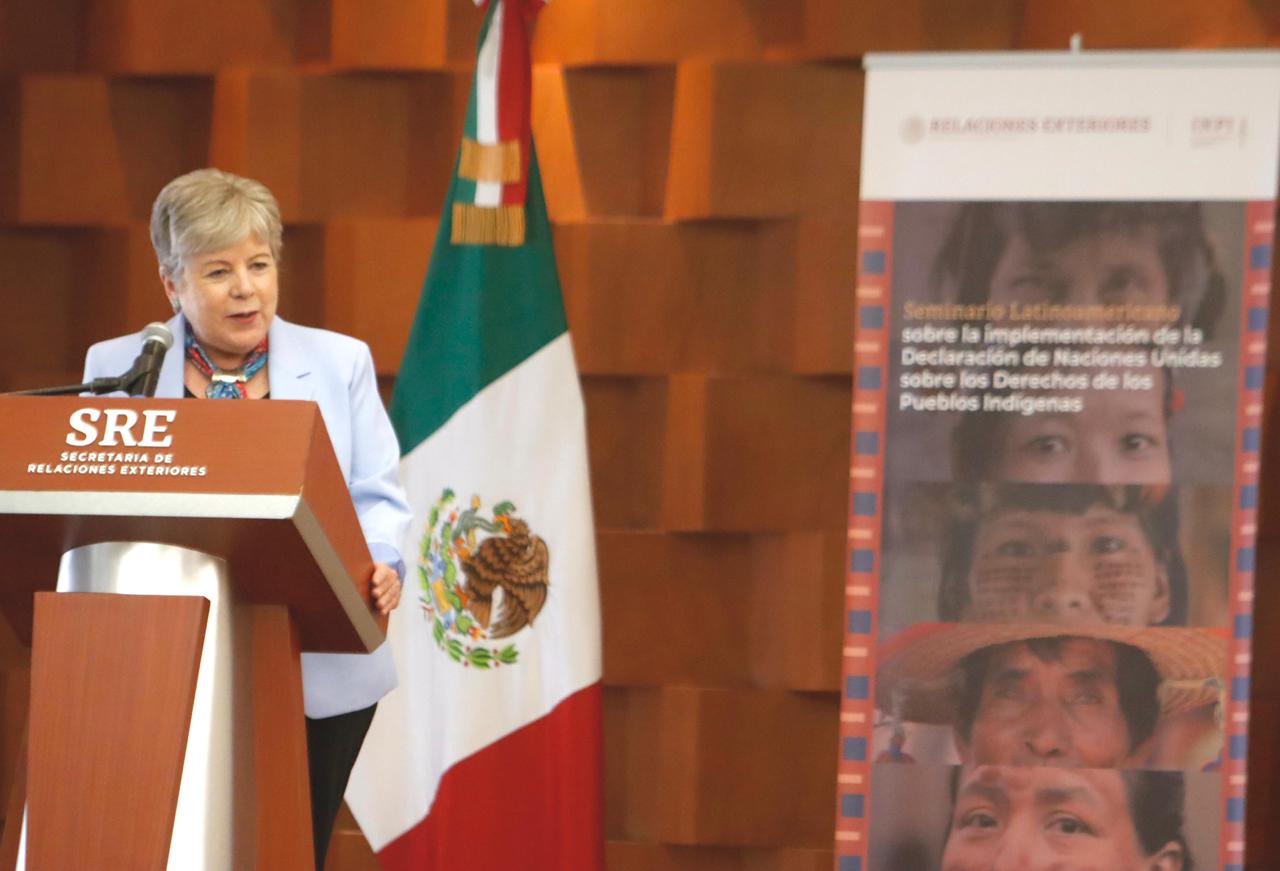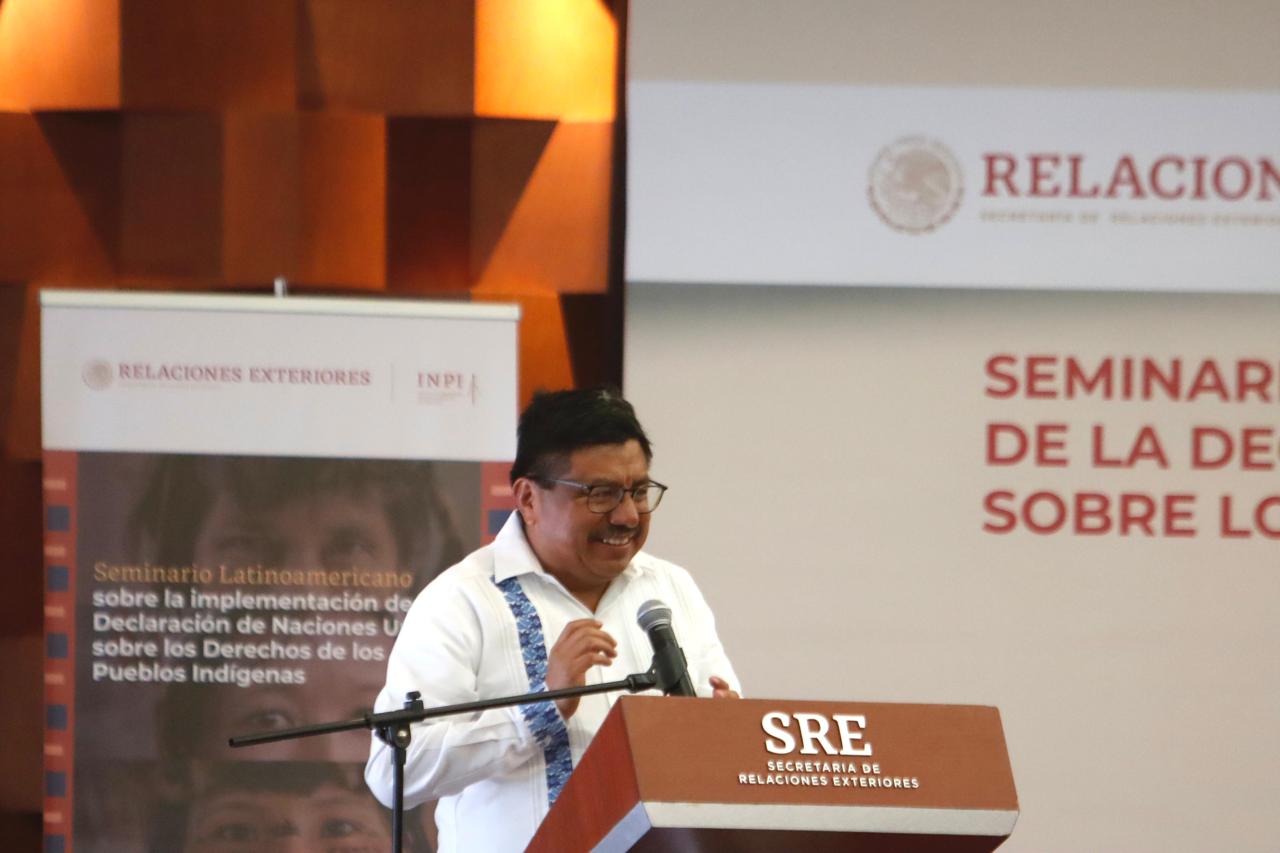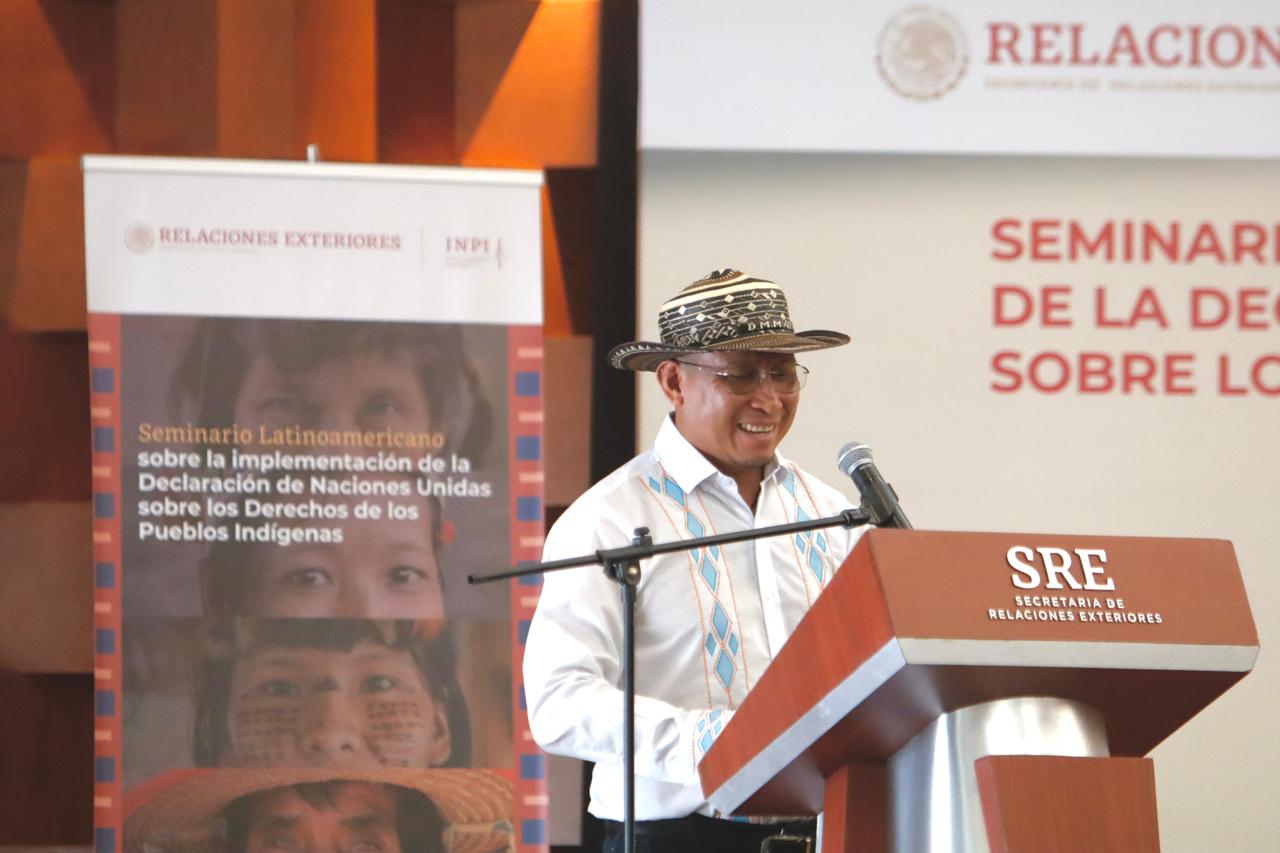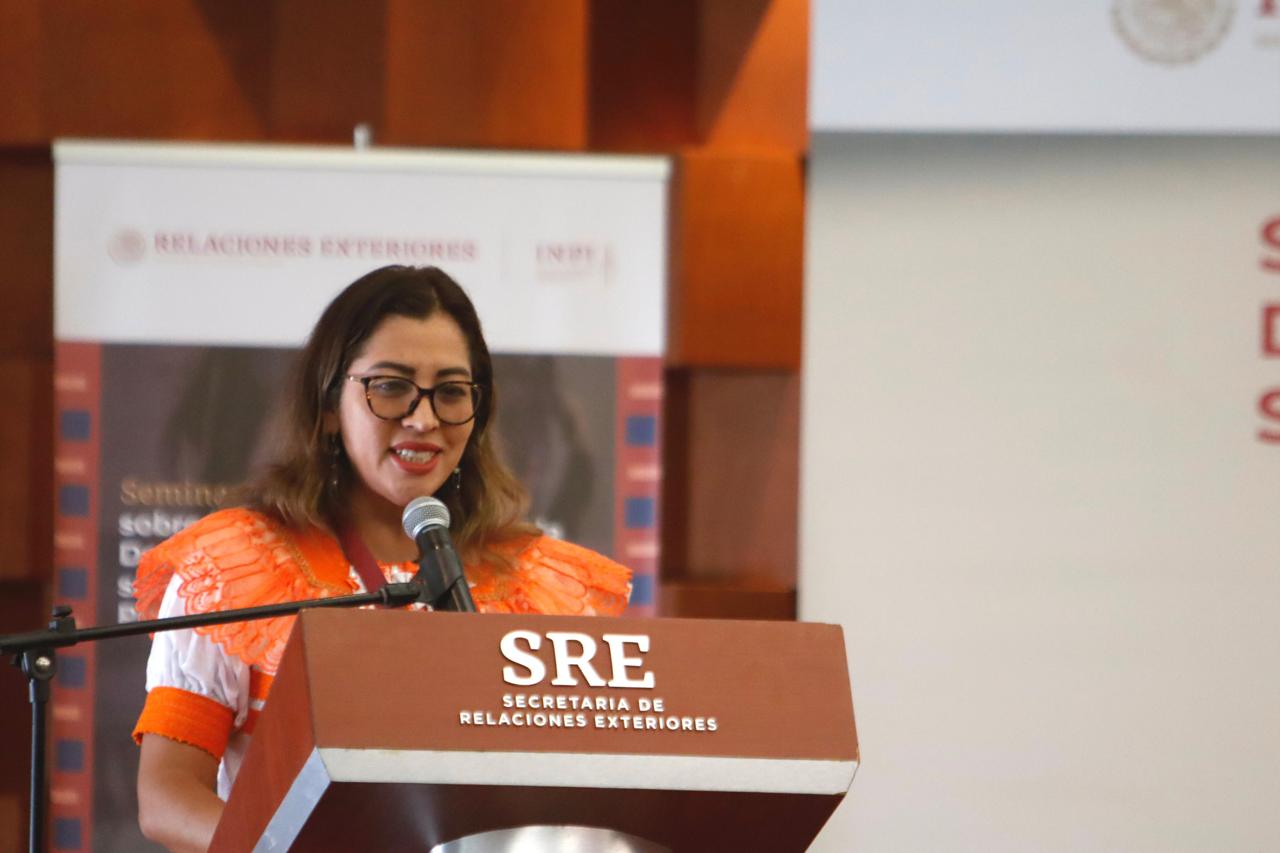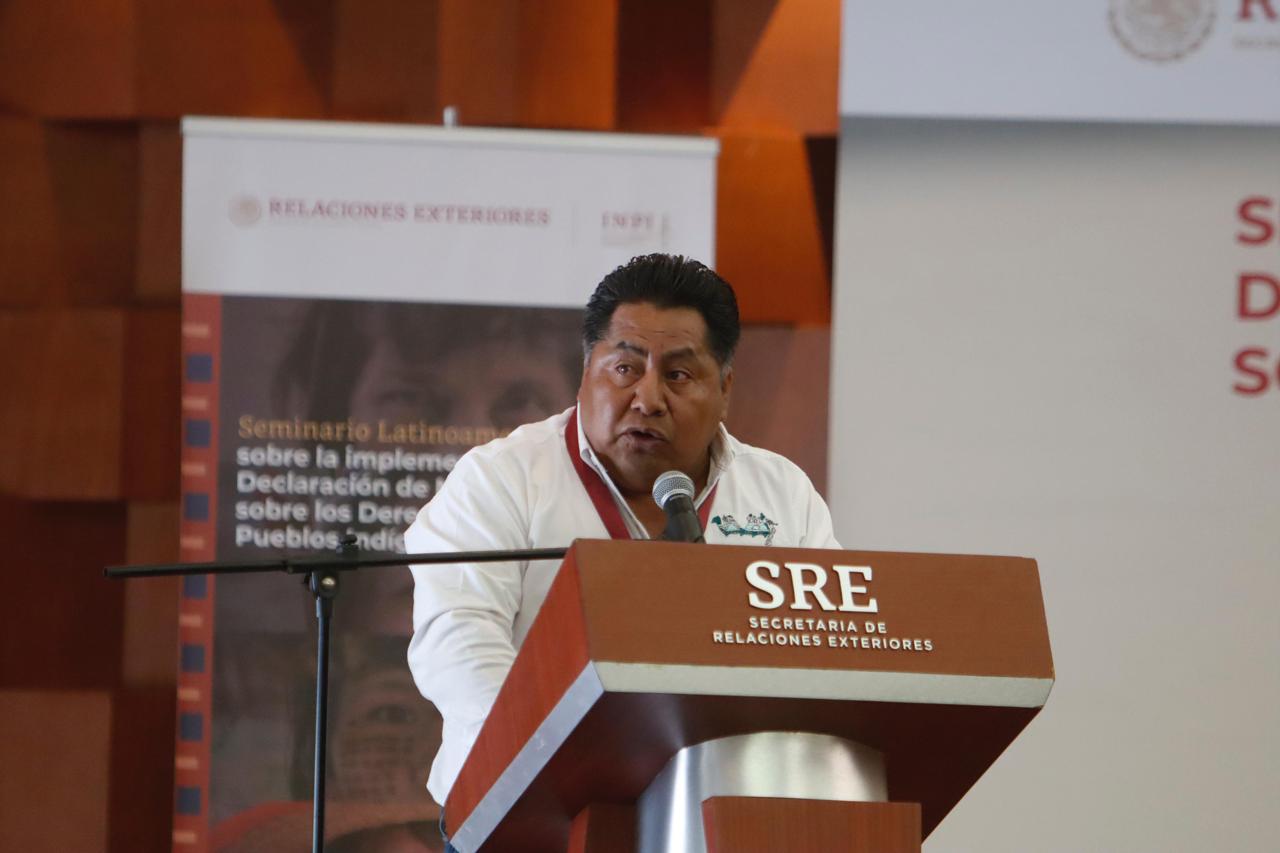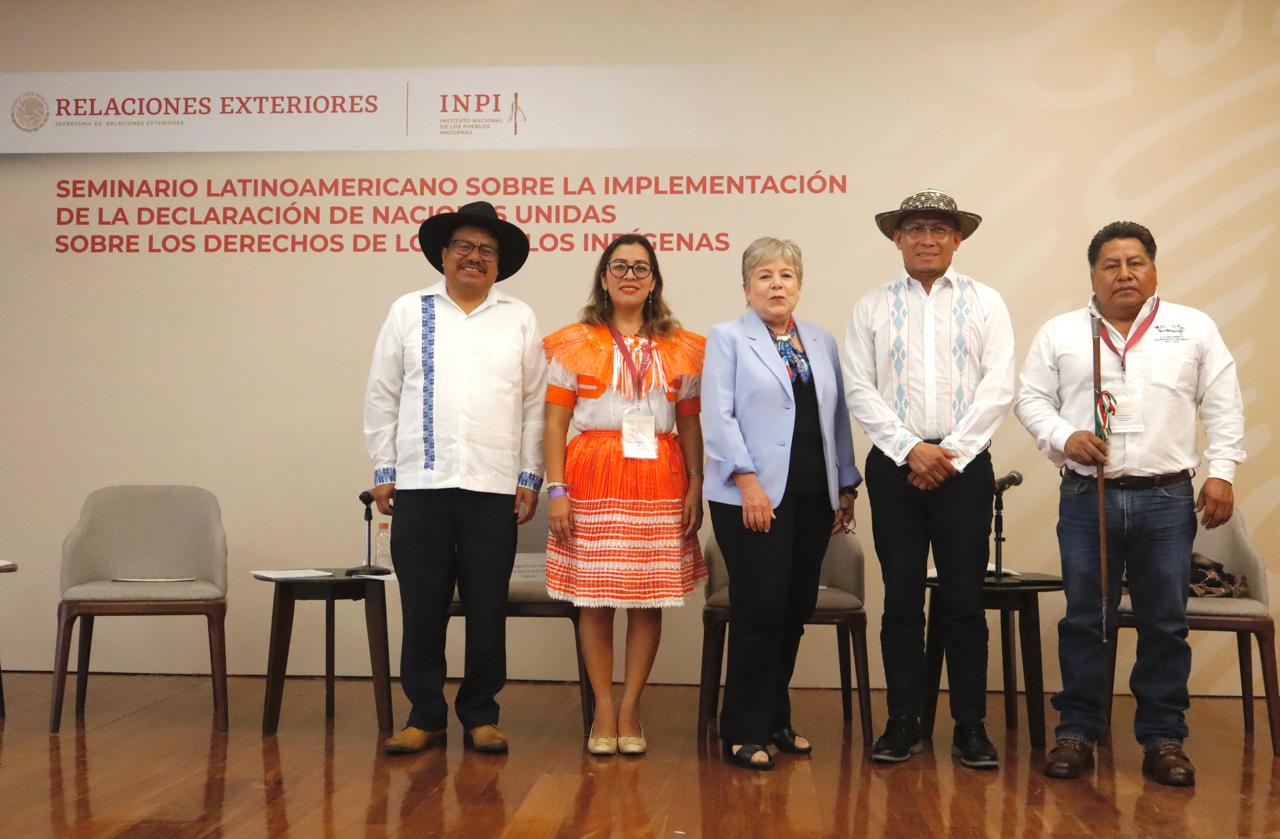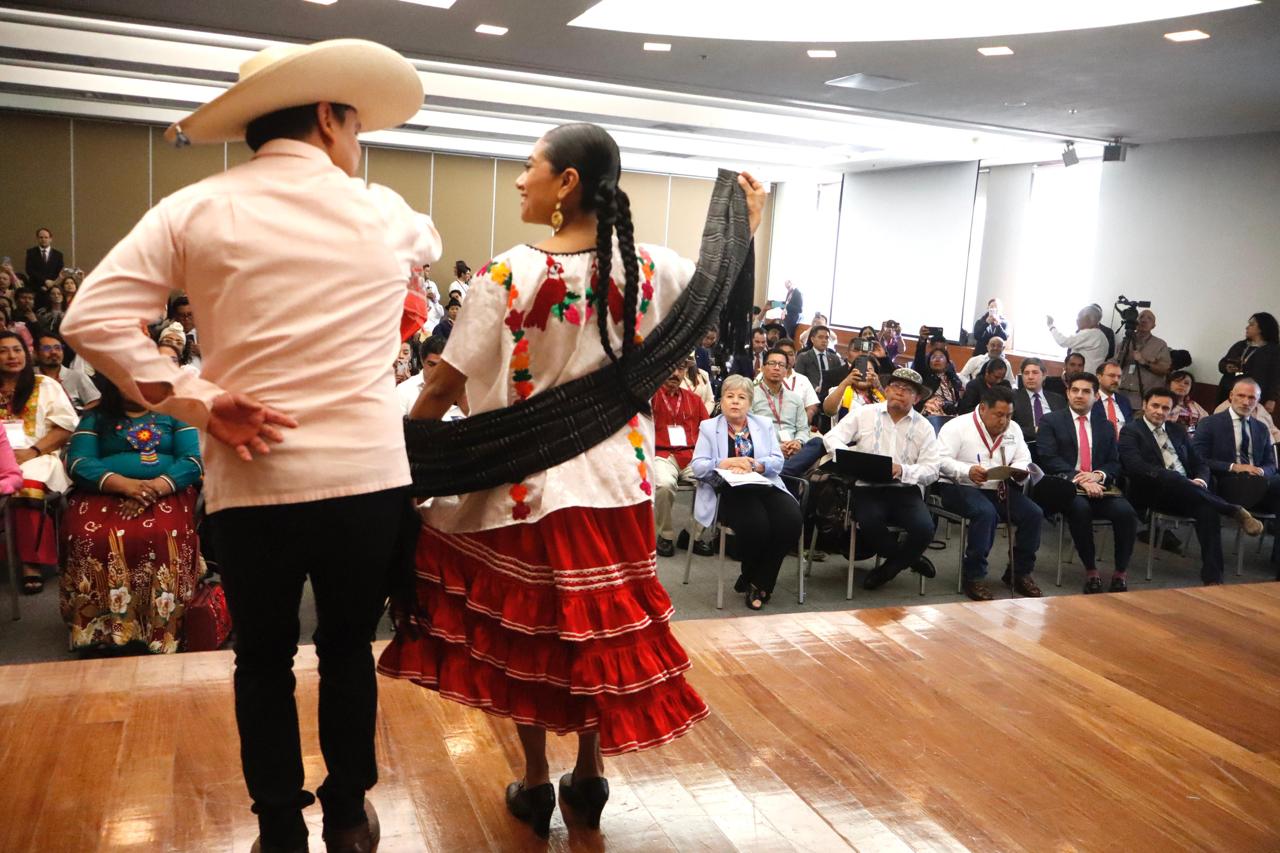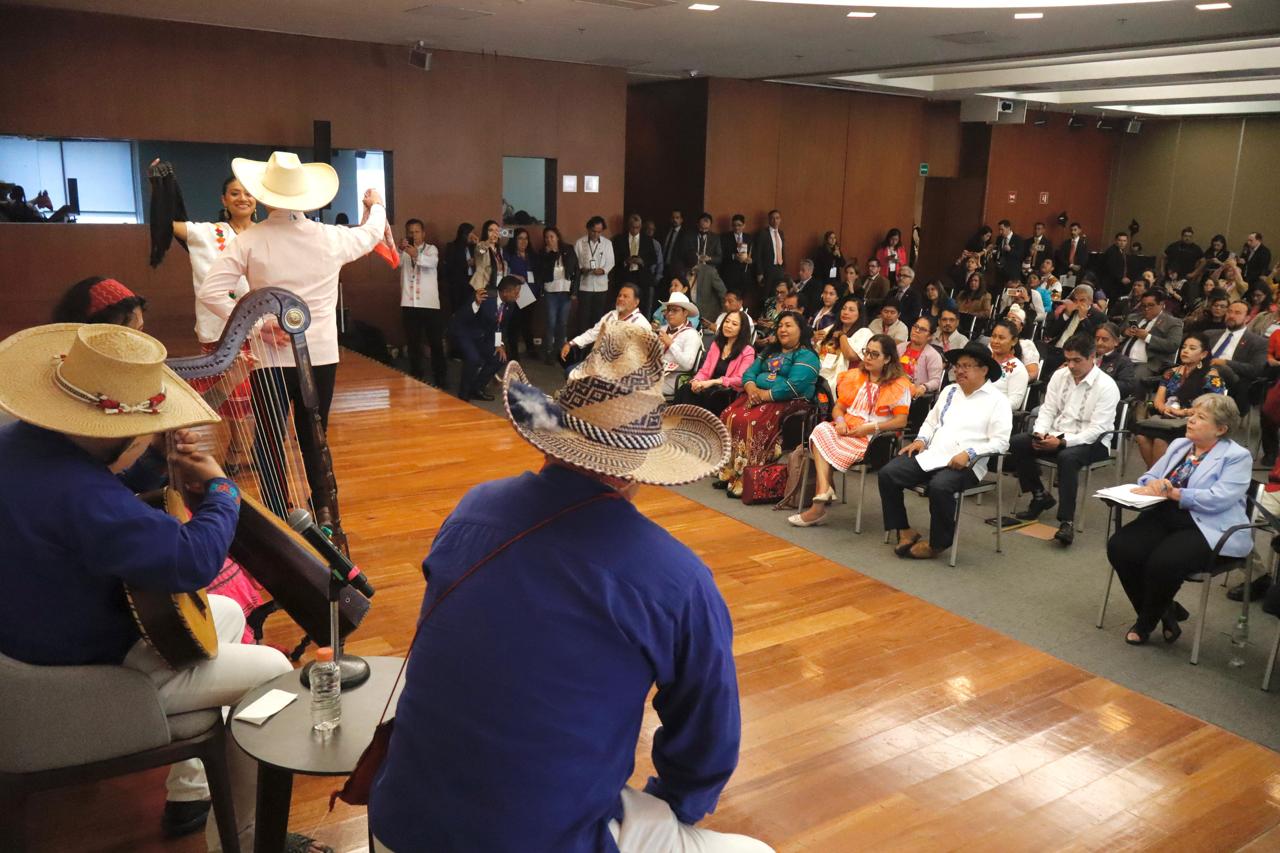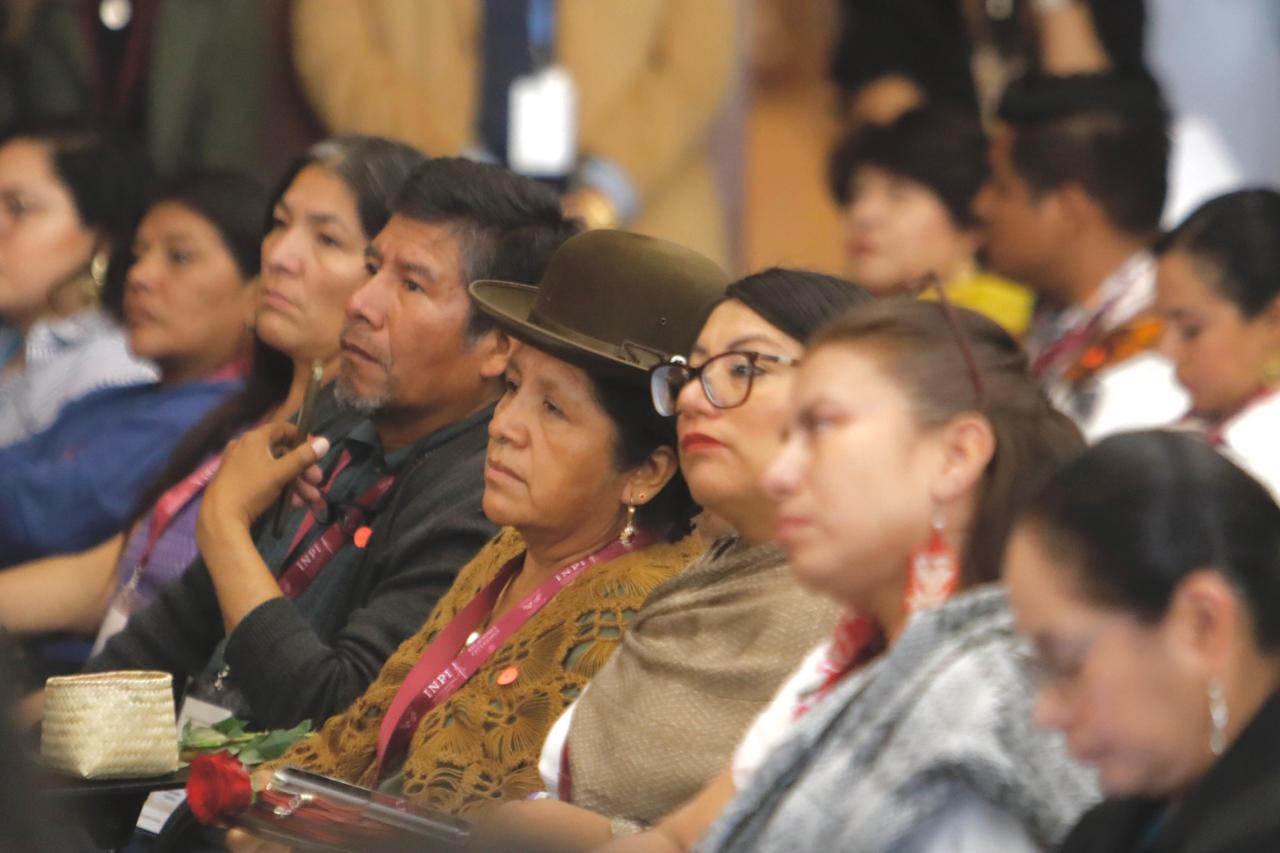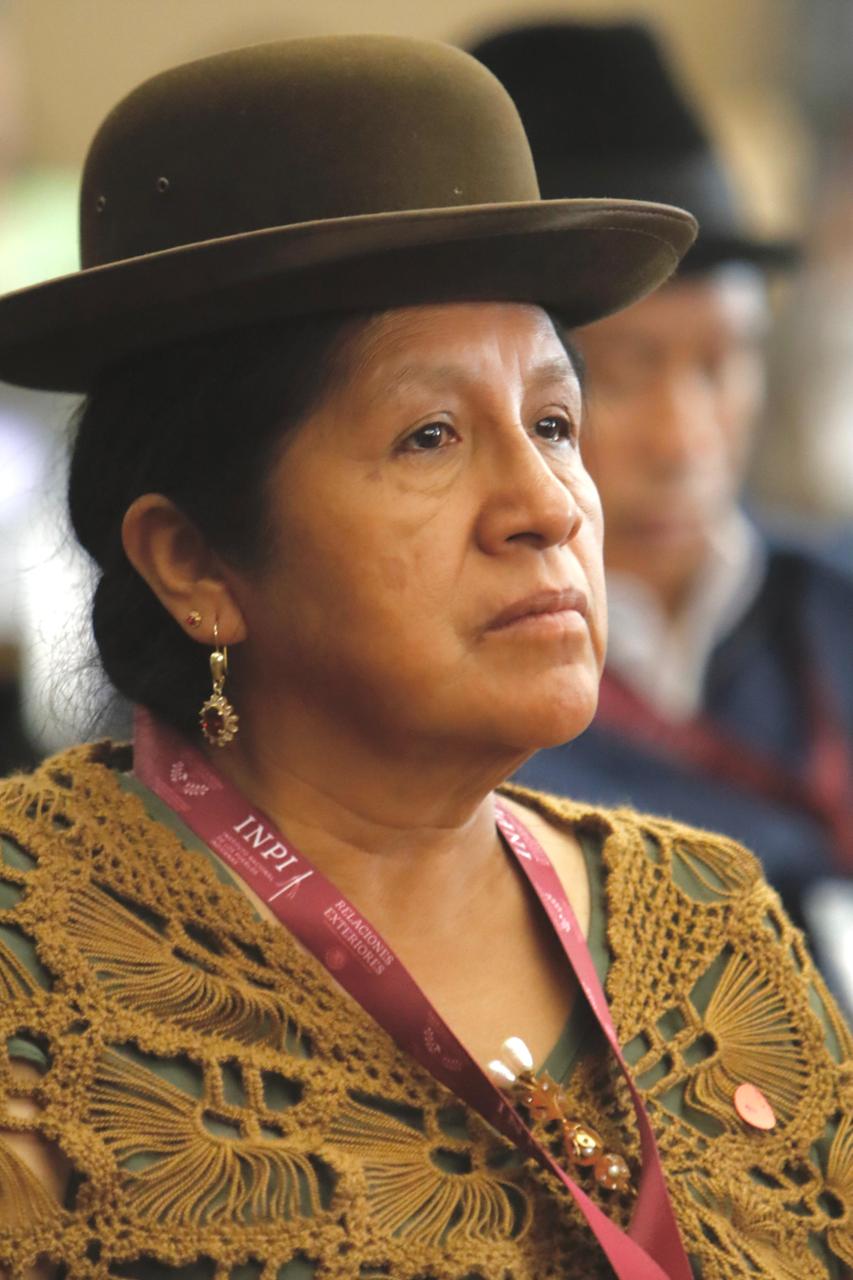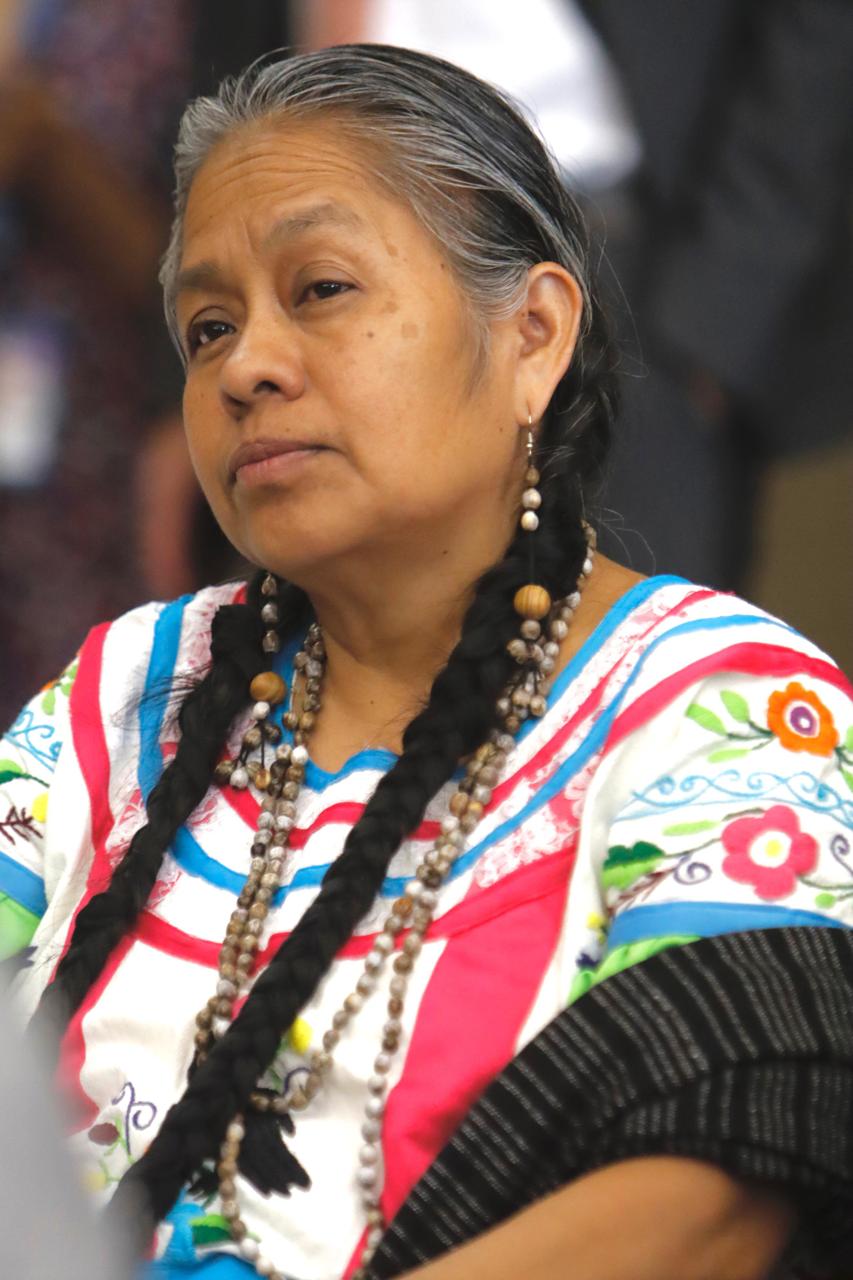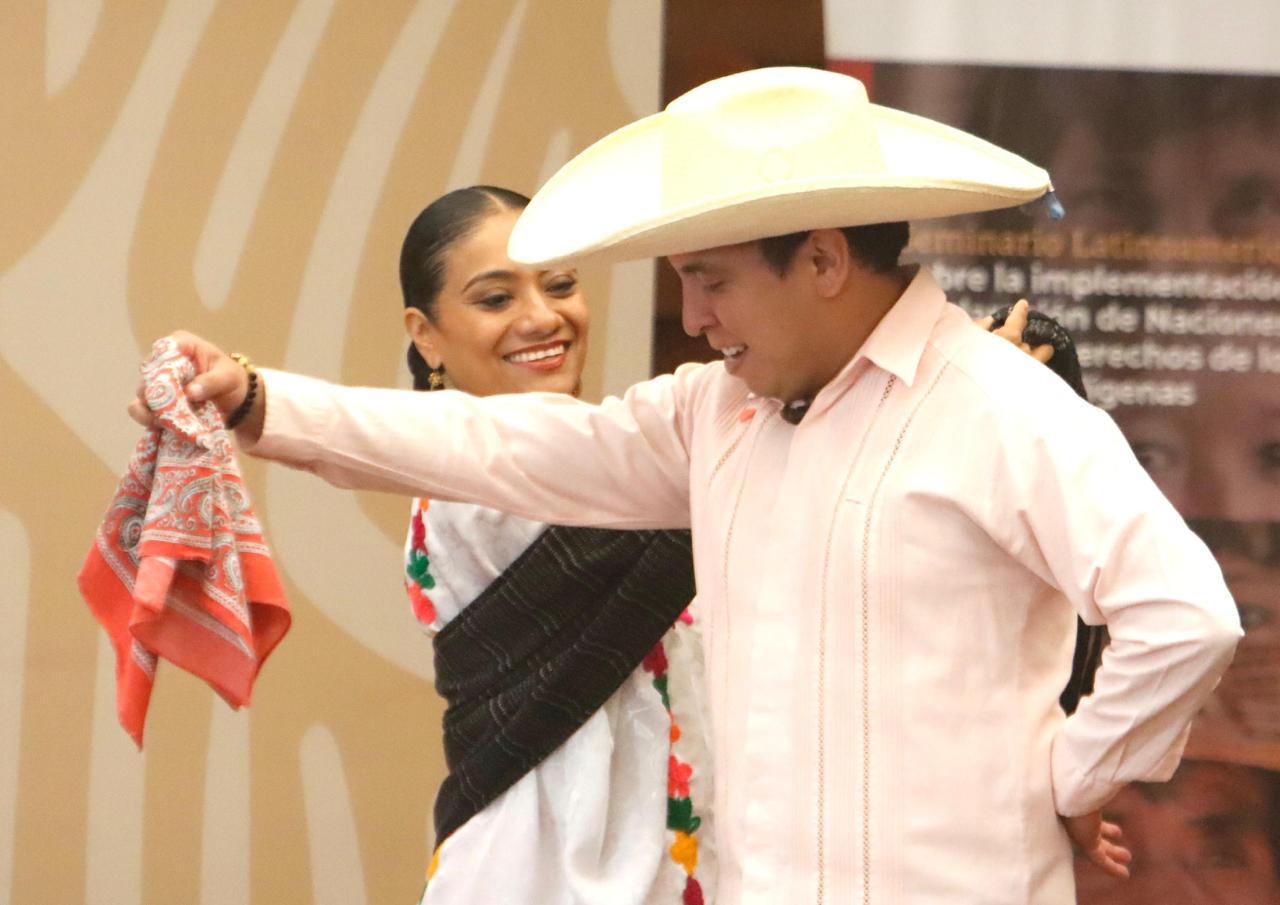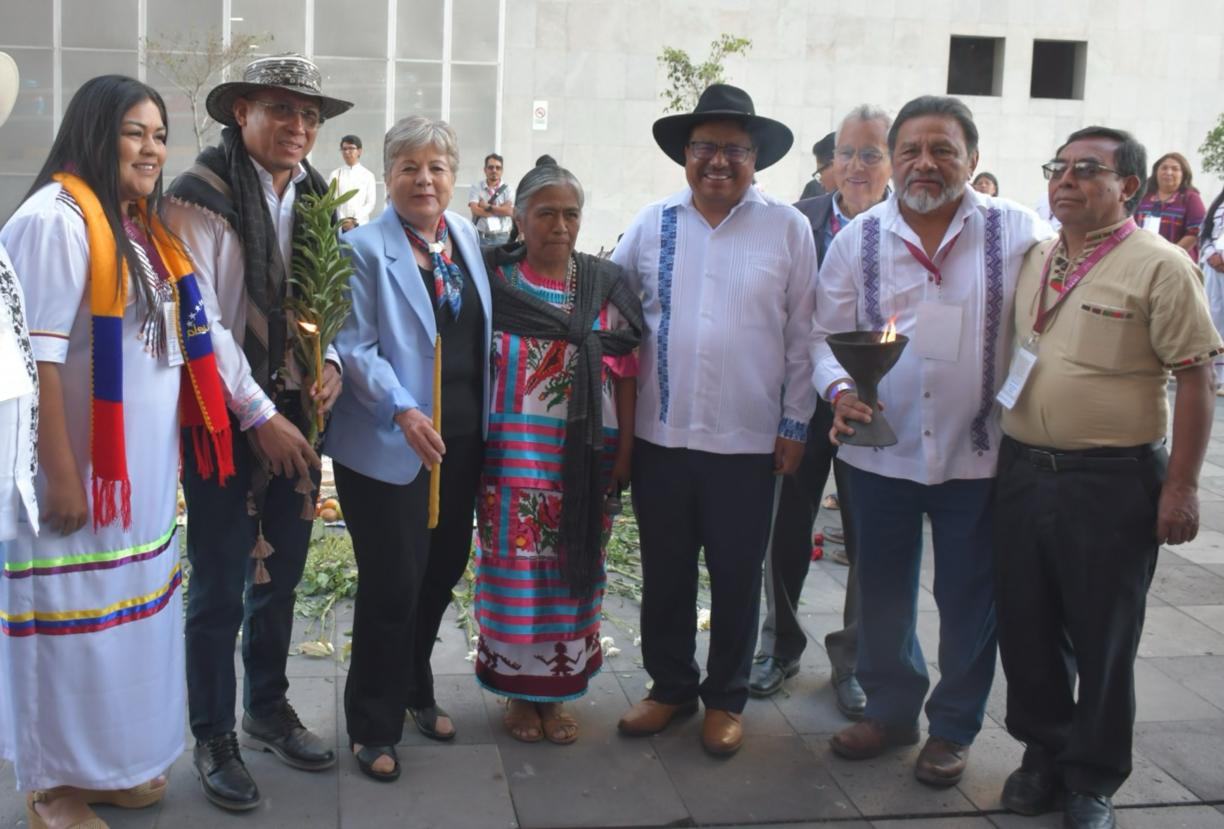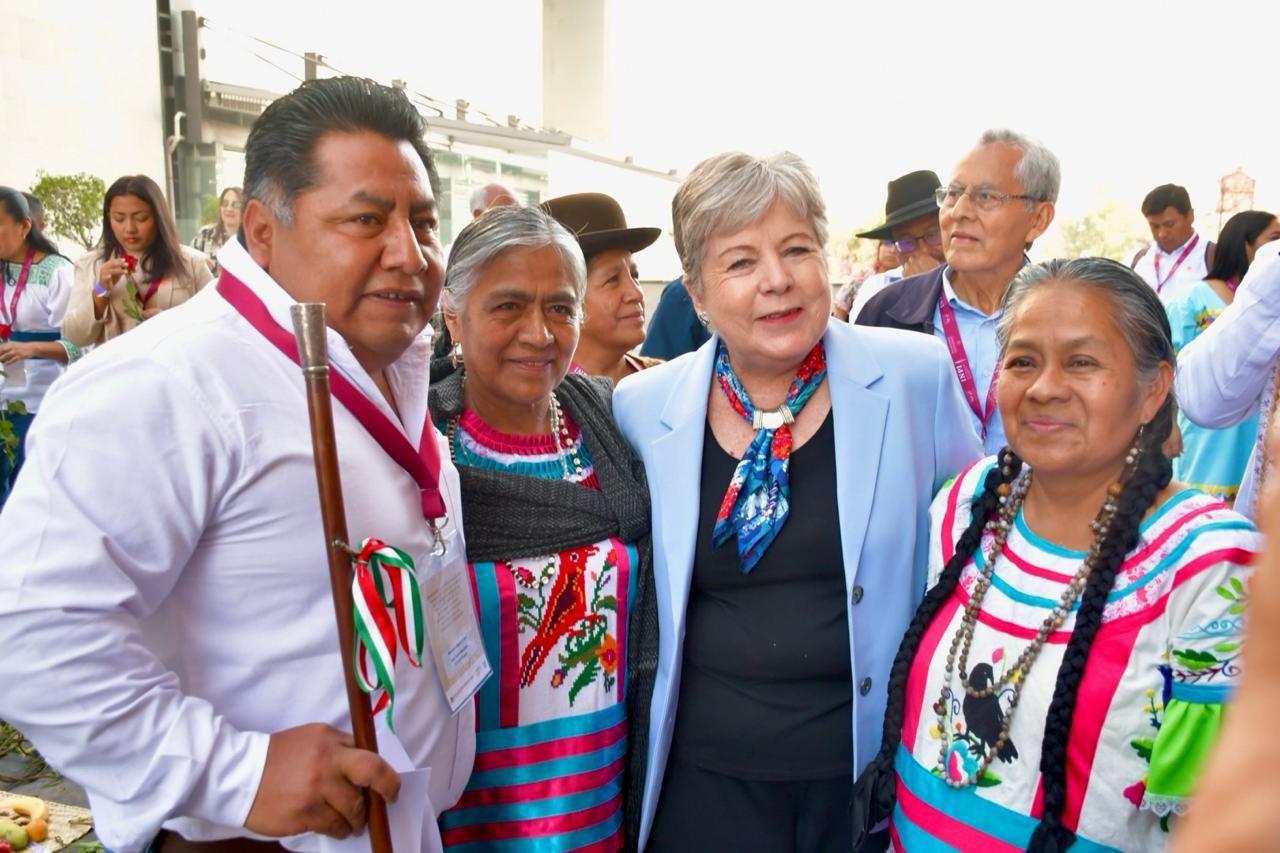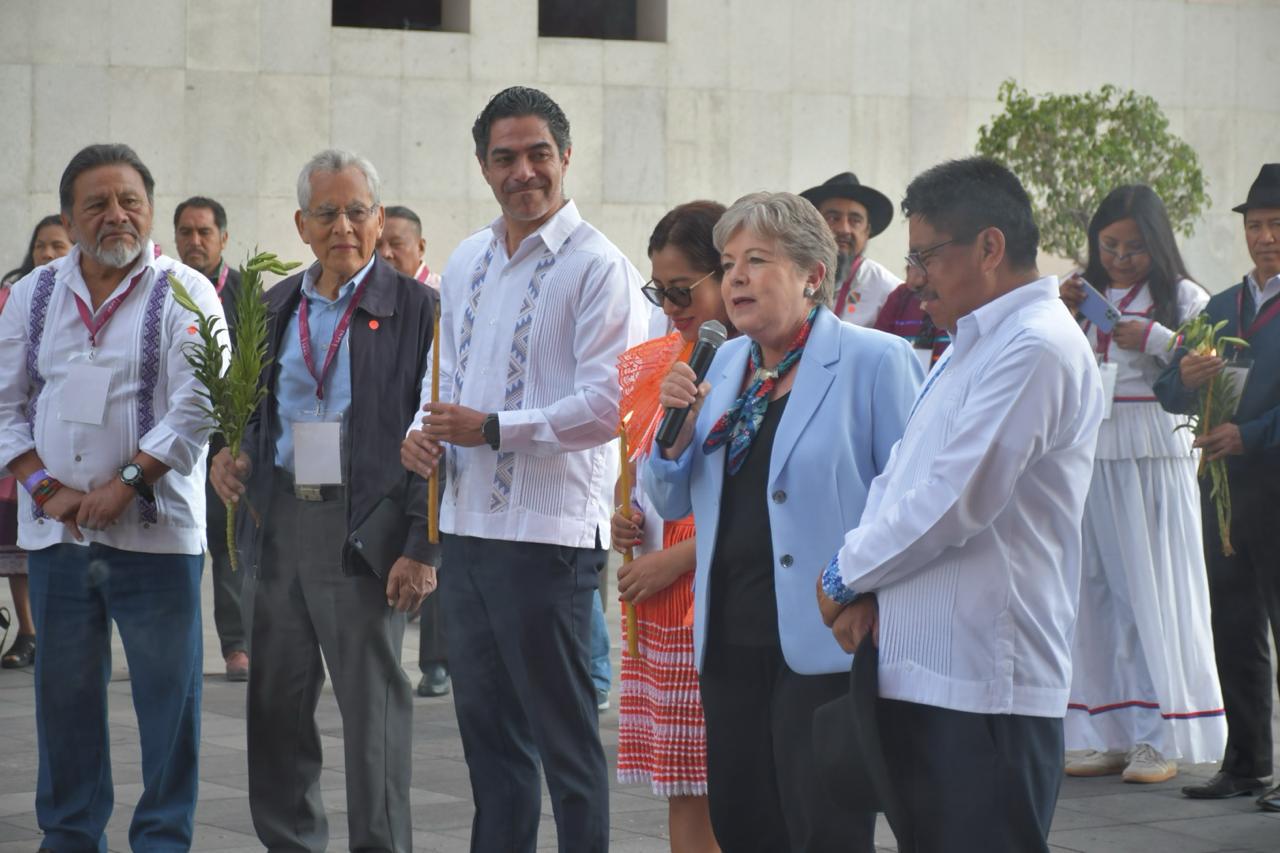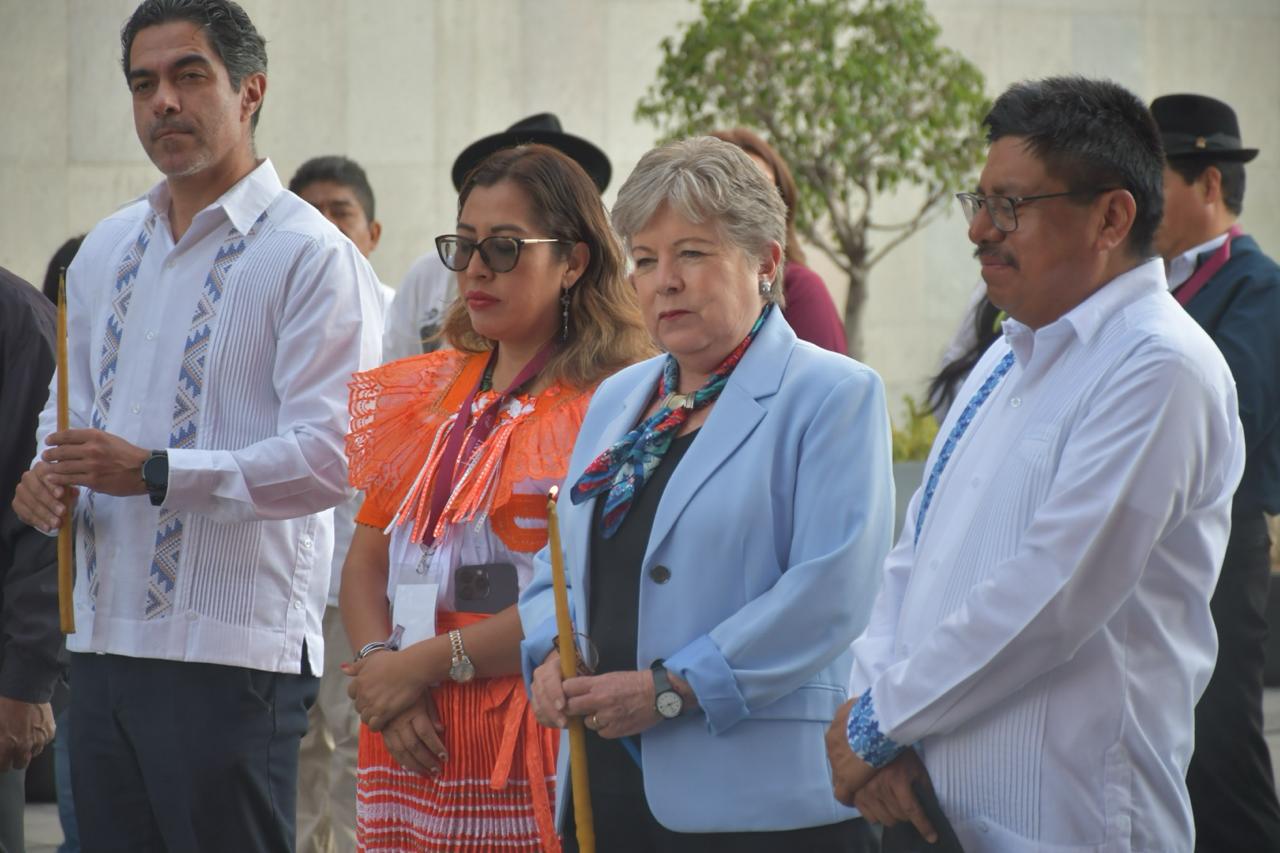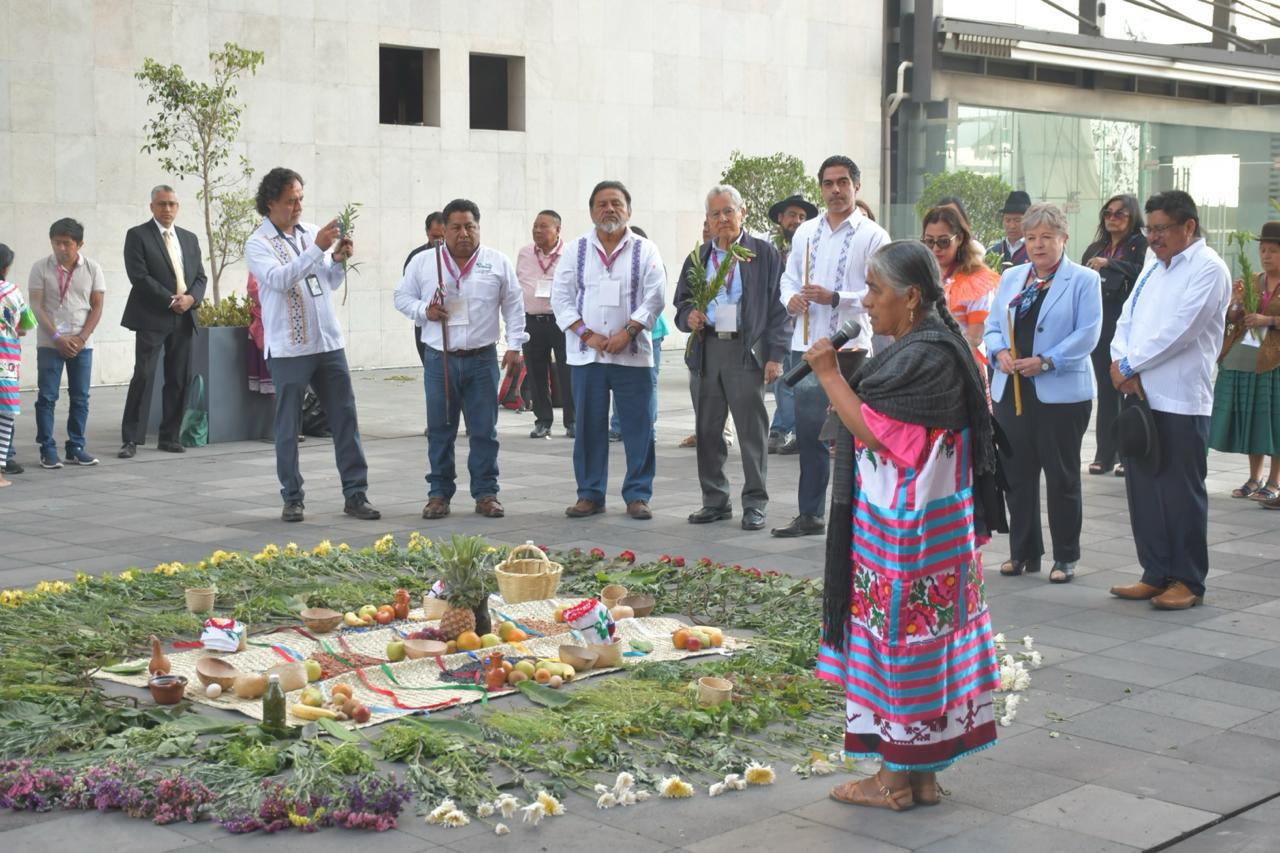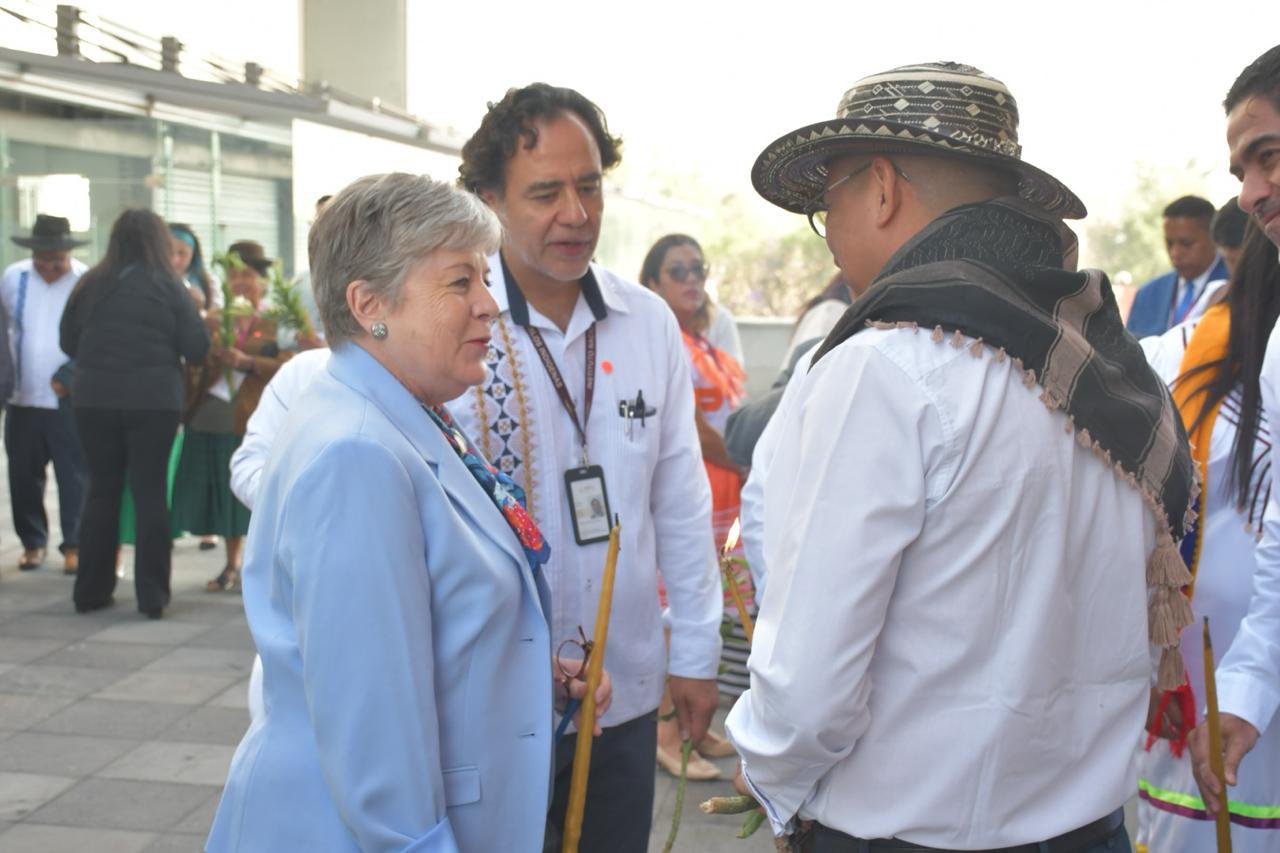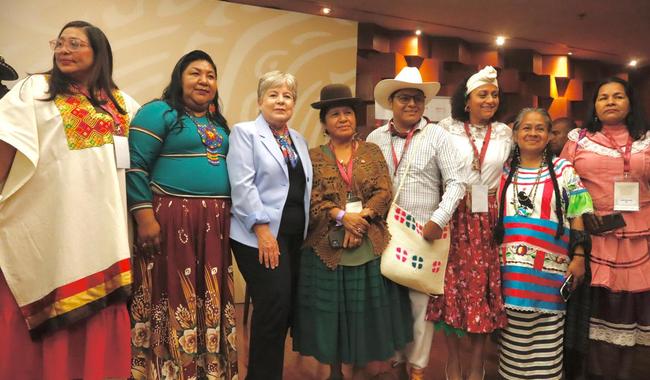- The reforms to Article 2 of the Mexican Constitution recognize indigenous and Afro-Mexican peoples as subjects of law.
- The seminar is taking place 17 years after adoption of the declaration on the rights of indigenous peoples.
The Secretary of Foreign Affairs, Alicia Bárcena Ibarra, and the Director General of the National Institute of Indigenous Peoples (INPI), Adelfo Regino Montes, inaugurated the Latin American Seminar: Advances and Challenges in Implementing the UN Declaration on the Rights of Indigenous Peoples, on its 17th anniversary.
For three days, government experts and representatives of indigenous peoples from Argentina, Bolivia, Chile, Colombia, Costa Rica, Ecuador, Guatemala, Mexico, Panama, Peru and Venezuela will discuss the progress and challenges to implementing the Declaration, at four thematic roundtables: Indigenous Peoples as subjects of collective rights, self-determination and Indigenous normative systems, lands, territories and natural resources, and cultural heritage.
Speaking to the national authorities, representatives of indigenous peoples and diplomatic corps from Latin America accredited in Mexico, in addition to UN agencies, Foreign Secretary Bárcena Ibarra noted the need to redouble efforts to implement the Declaration in all the countries of the region in order to guarantee, protect and promote the rights of indigenous peoples.
"In Latin America today, indigenous peoples number around 45 million. We are talking about 826 indigenous communities throughout the region and I believe that, in Mexico at least, our roots are deeply indigenous and are a large part of our identity, and our foreign policy has to reflect that," she said.
She highlighted Mexico's support for initiatives such as the UN Permanent Forum on Indigenous Issues, the mandate of the Special Rapporteur on the Rights of Indigenous Peoples, the International Decade of Indigenous Languages (2022-2032) and the World Conference on Indigenous Peoples.
She mentioned the reforms proposed by President Andrés Manuel López Obrador to Article 2 of the Constitution to recognize indigenous and Afro-Mexican peoples, which include intellectual property, autonomy, self-determination, consultation and consent.
"We welcome the specific reforms proposed by President Andrés Manuel López Obrador, such as reforming Article 2 of the Constitution to recognize indigenous and Afro-Mexican peoples as subjects of law," she said.
Secretary Bárcena invited the participants to learn about the 31 articles of the declaration, and regretted that there are countries that still do not recognize indigenous peoples in their constitutions.
"It is good that Mexico does, it is good that Ecuador does, it is good that Bolivia does, but we still have a long way to go and I think that this is what we need to evaluate at this type of seminar, to see which path to follow and how to design multilateral instruments that will allow us to take that important step towards the turning point we are looking for,” she remarked.
INPI head Adelfo Regino Montes said that Mexico has taken important steps to implement the UN Declaration on the Rights of Indigenous Peoples, in fulfillment of the commitment made at the 22nd session of the Permanent Forum on Indigenous Issues in 2023.
In addition, he emphasized the 20 initiatives presented by the President on February 5, and highlighted the importance of the constitutional reform initiative on the inalienable rights of Indigenous and Afro-Mexican Peoples. The cornerstone of this initiative is their recognition as subjects of public law, with a legal personality and their own patrimony, as a key part of the self-determination enshrined in Article 3 of the UN Declaration on the Rights of Indigenous Peoples.
He said that the proposed reforms elevate to constitutional status the recognition and protection of the cultural heritage of indigenous peoples, their collective intellectual property, bioculturality and sacred sites.
The seminar’s inauguration was also attended by the president of the Council of the Traditional Government of the Chocholteco Ngigua-Ngiba People, Horacio Miguel Cruz; the coordinator of the National Council of Indigenous Peoples, Yaneth Cruz Gómez, and the president of the UN Permanent Forum on Indigenous Issues, Darío José Mejía Montalvo.
The seminar participants will prepare recommendations to contribute to the declaration’s effective implementation in Latin American countries.
